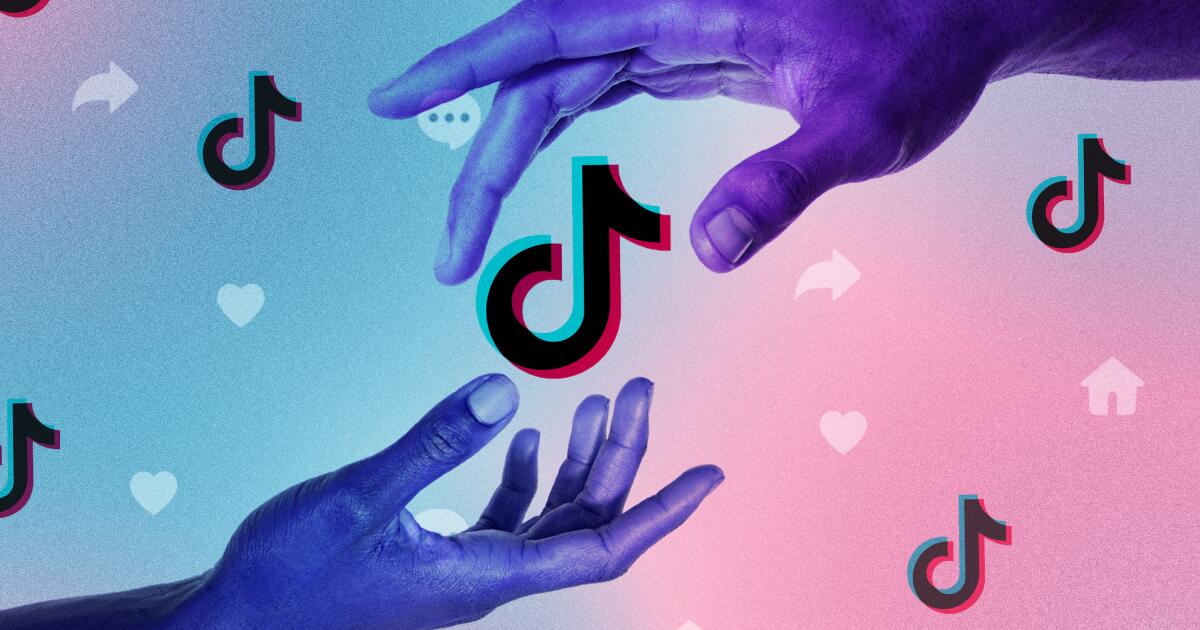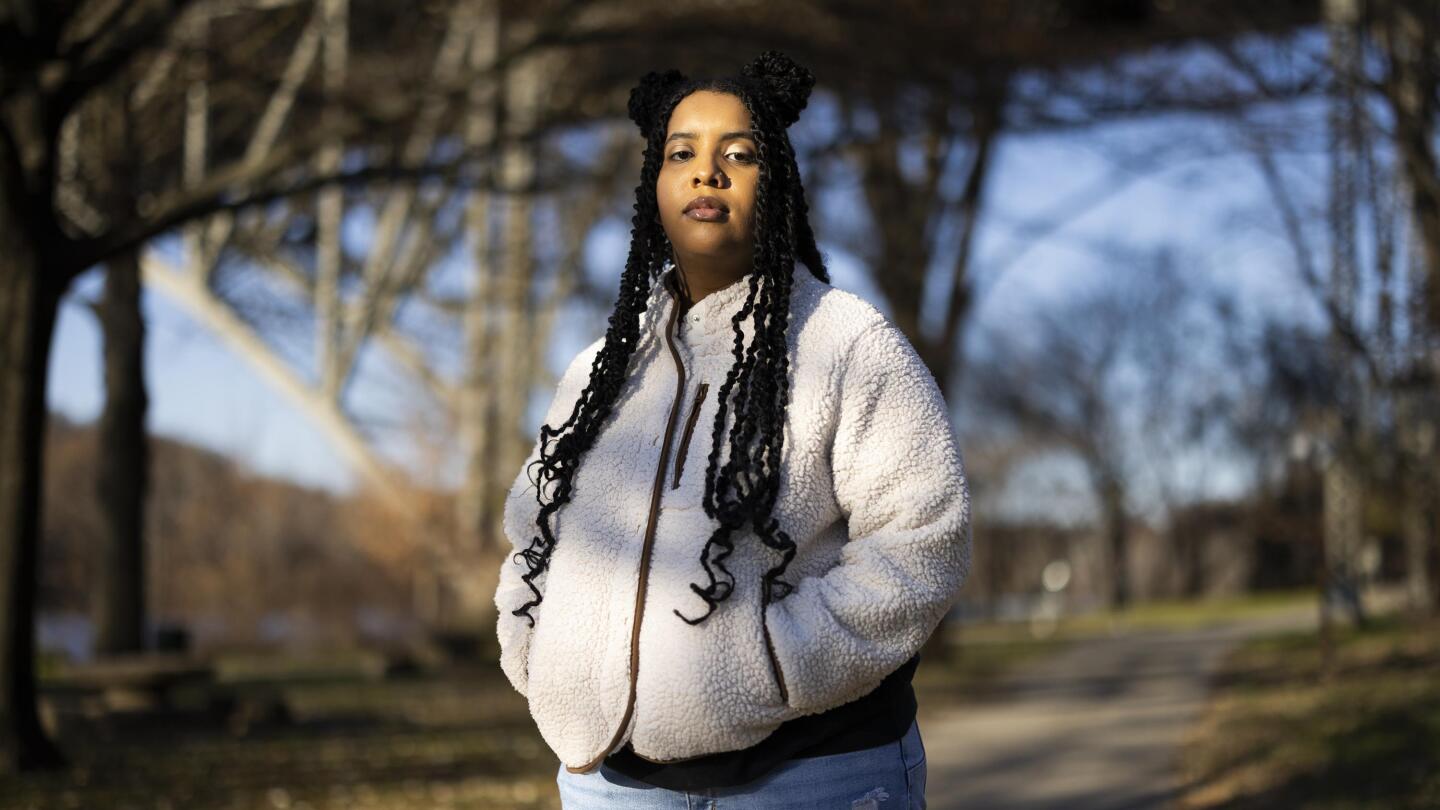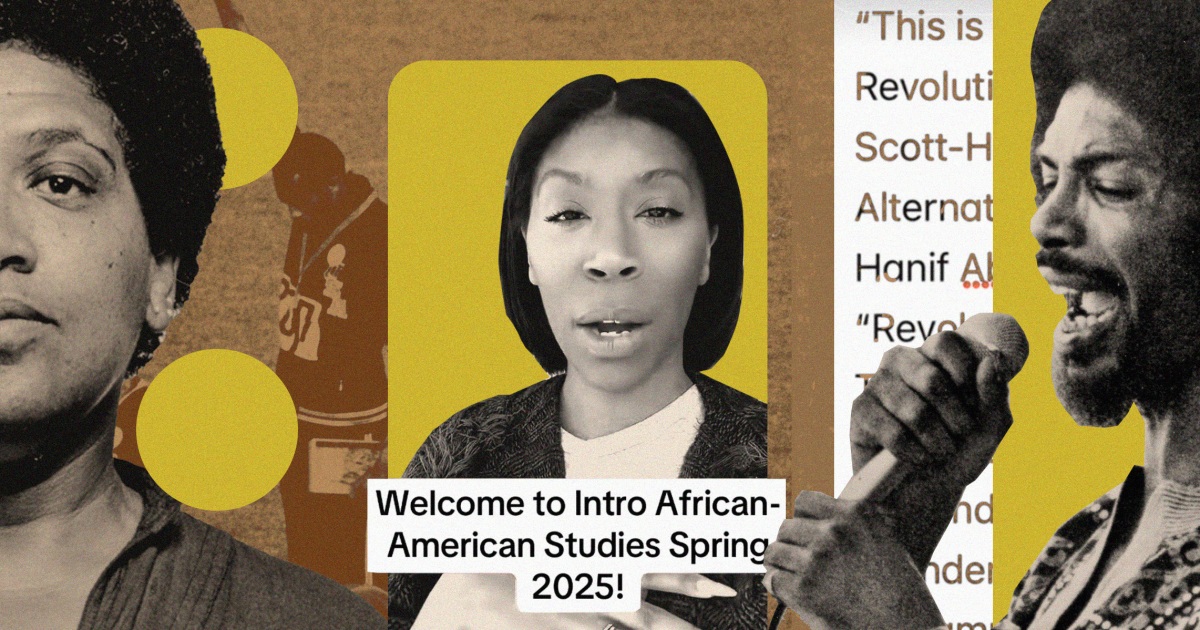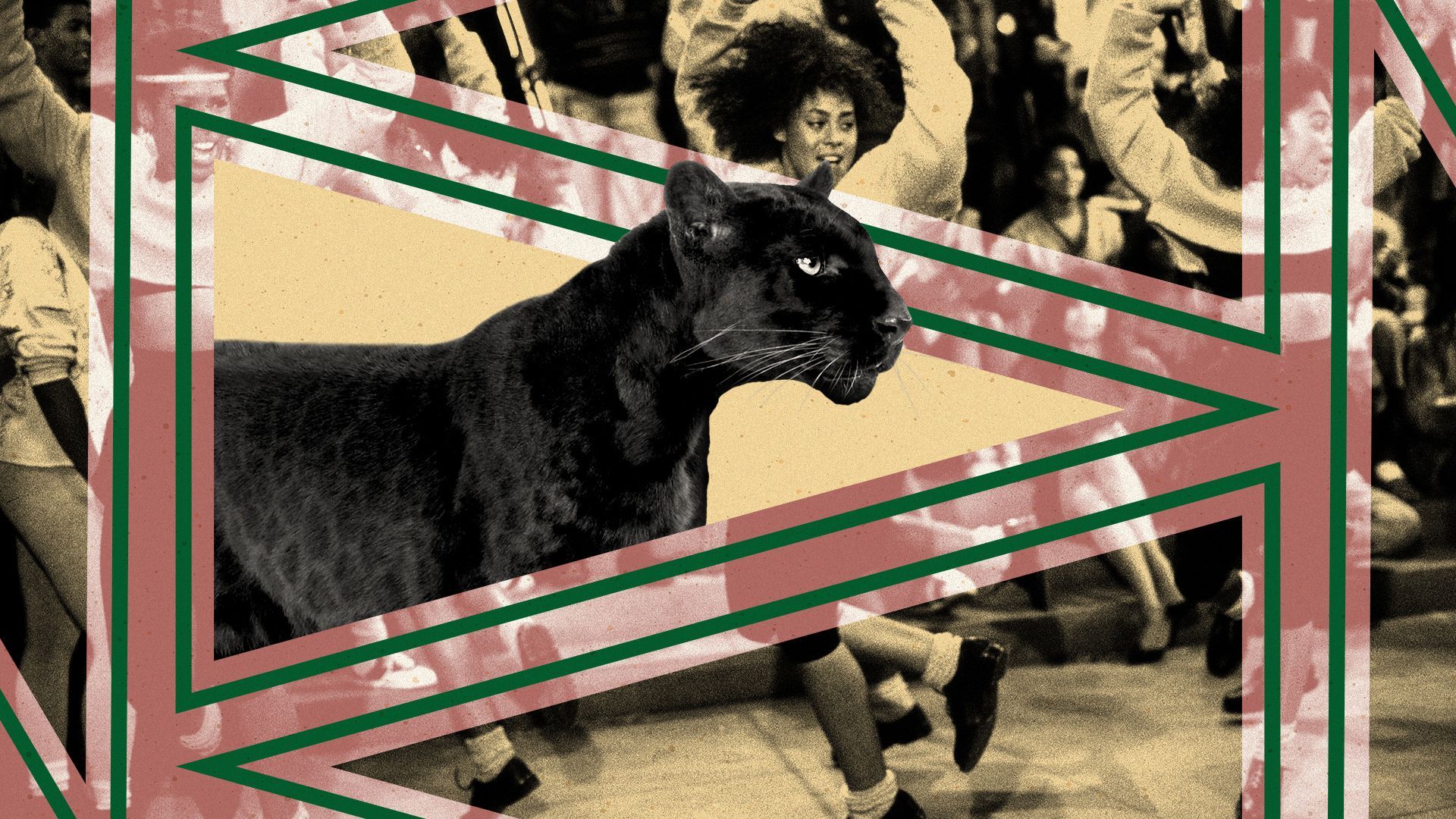
The Black history you didn't learn in school is being taught on TikTok
This February, several Black creators went viral with videos that offered a more nuanced and in-depth exploration of the Black experience in America.

Across the TikTok app, Black creators are posting videos that confront America’s racist past.
(Micah Fluellen / Los Angeles Times; Getty Images)
BY ARIT JOHNSTAFF WRITER
FEB. 27, 2021 7:55 AM PT
Put away your textbooks and pull out your cellphones: some of the best Black history lessons are happening on TikTok.
Across the app, Black creators are posting videos that confront America’s racist past in graphic detail, use history to add context to the way race is viewed today and view history through a lens that addresses the way homophobia, colorism, age and respectability politics influence who history remembers best. They go beyond the surface level explorations of the Rev. Martin Luther King Jr. and Rosa Parks that run rampant during Black History Month to examine lesser-known figures, and they don’t limit themselves to February.
They’re also fun, youthful and modern — PBS, this is not. (No shade.) The creators bring some of the best elements of the app — the humor of Gen Z and young millennials, green-screen backgrounds, low-budget props and popular music — to content that’s both educational and entertaining in a way history lessons so rarely are.
In her viral TikTok video on “that one time 5,000 Black kids went to jail in Birmingham,” Lynae Bogues, a 26-year-old influencer and poet based in Atlanta, plays both the sheltered student and the teacher frustrated by what isn’t commonly taught in schools.
“Five thousand Black kids?” she asks.
Bogues goes on to explain the history of the Birmingham Children’s Crusade, when thousands of young Black children protested and marched in the Alabama city — facing police dogs and firehoses — in May 1963. In the comments, some viewers shared that they were familiar with the protest — their parents were there, they said. For others, seeing the video was a mixture of shock (that they didn’t know) and disappointment (because they should have). That mixture of emotion helped spread the clip across the app — the video has been viewed more than 2.8 million times and helped Bogues gain nearly 100,000 followers this month.
“Even talking to my parents, my mother from Mississippi, she had no idea that something like that had happened,” Bogues said.
The internet is often rife with misinformation, especially on issues related to race, but any platform that “helps us tell these stories” well and accurately is good, said David Pilgrim, a sociology professor at Ferris State University in Michigan and founder of the school’s Jim Crow Museum. The museum displays and provides context for racist memorabilia in an effort to paint a full picture of American history.
“I am often somewhere between disappointed and dismayed at the lack of knowledge of our country’s past that we find not just in young people, but even older people,” Pilgrim said. “I use to joke that if you don’t make a movie about it, people don’t know it happened.” On TikTok, people are making do with just a minute.
In the last year, TikTok has outgrown its reputation as a platform that solely features videos of young people dancing to popular songs to include educational and instructive content. In the wake of last year’s racial justice protests, the app has also sought to highlight diversity within its community. To mark Black History Month the app has held a series of livestreams and musical events. TikTok also named 100 people to itsBlack creatives incubator program to help them build their brands.
At the same time, Black creators have noted that clips addressing racism are sometimes flagged as hate speech by the app, while elsewhere actual hate speech is not always taken down promptly. (“Racism, hate speech, harassment absolutely have no place on TikTok,” said Kudzi Chikumbu, TikTok’s director of Creator Community.) In some cases, they’ve been accused of being divisive; other times they’ve had to create workarounds, such as spelling certain words — like “negro” — with numbers and symbols to avoid being flagged. “I have my days with TikTok, to be honest, it’s a love/hate thing,” said Nick Courmon, a 23-year-old who shares Black history through spoken word poetry on the app.
Despite TikTok’s problems, there is a clear audience for the kind of educational content Black creators are bringing to the platform. Here are four Black creatives who’ve gone viral sharing the history that’s often forgotten.
Lynae Bogues, @_lyneezy
Bogues started off on Instagram, where she has a following of more than 144,000. There, she hosts a segment, “Parking Lot Pimpin’,” that covers topics like misogynoir (discrimination against Black women) and colorism. She moved to TikTok to reach a new audience.As a child, Bogues said she actively sought out opportunities to learn more about Black history. In her language arts and science classes, she noticed that the figures she was learning about were predominantly white. “I just knew that there was such a wealth of Black people creating and making history,” she said. Her experience as an undergraduate at Spellman College, a historically Black institution in Atlanta, was a complete 180: Suddenly, every class was taught through the lens of Black studies, she said.
Bogues got a master’s in African American studies at Boston University, then taught history and ethnic studies in Georgia. There, students who’d taken ethnic studies under a previous teacher would say: “Oh, man, last year, when I took this class, all we did was watch movies, all we did was write about Frederick Douglass,” she said. “What I brought to the class was talking about little-known figures, little-known moments, that have larger implications to their everyday lives.”
She’s taken that same approach to her videos. In one TikTok, described as “Things you thought Martin Luther King Jr. did but he didn’t,” she explains that the Montgomery Bus Boycott was actually started by Jo Ann Robinson, a member of the local Women’s Political Council. In another she argues why “the concept of race has no scientific bearing” and how it relates to eugenics and scientific racism.
Kahlil Greene, @kahlilgreene
Kahlil Greene, a senior at Yale College studying the history of social change and social movements, started his TikTok account in January with videos calling out the “whitewashing” of King’s legacy and highlighting his quotes on race and class. But he’s best known for his “Hidden History” series that explores “crazy, creepy and/or covered-up American history.”On Presidents Day, he asked, “Did George Washington take his slaves’ teeth to put in his own mouth?” In another he asks, “Did white people organize real-life Hunger Games for Black kids?” In the third video in the series, he looked at evidence suggesting Black babies were used as alligator bait by white hunters in the late 1800s and early 1900s.
Greene said the inspiration for each video often comes from things he heard mentioned by relatives growing up. “These were told to me through oral histories, because my family is Black in America,” he said. “These were things that were passed down, and they really shaped my perception of American history.”
While family stories sparked some videos, Greene does his research and shows his work.
“The sources are always listed in my videos,” Greene said. “That’s something I always make sure to do, so in the case that someone does disagree with me, and they have a valid argument, they see where I’m pulling the sources from, where I’m pulling the quotes from.”
Nick Courmon, @ndcpoetry
At first, Nick Courmon, a graduate student in African American studies at North Carolina Central University, didn’t want to join TikTok.“I was very, very hesitant on using TikTok, primarily because I had my own preconceived notion of it,” Courmon said. “I was thinking that it was just this app that was just kids dancing and doing all kinds of nonsense.”








